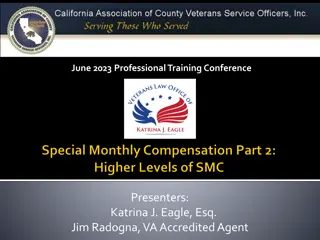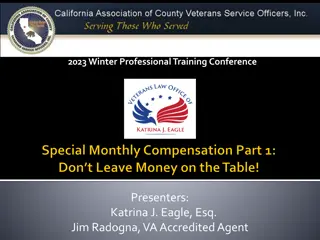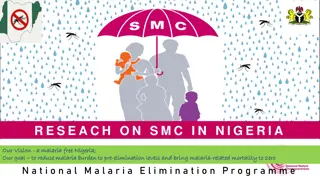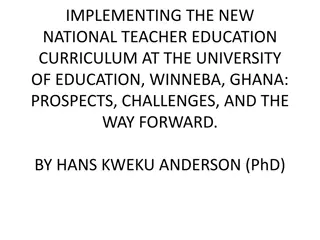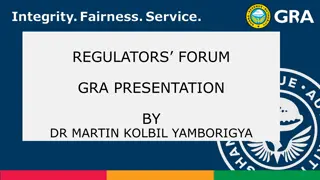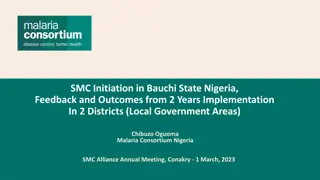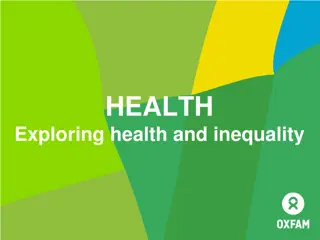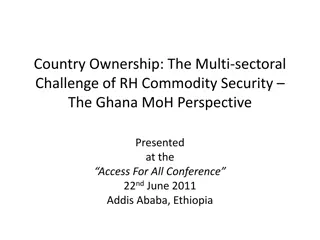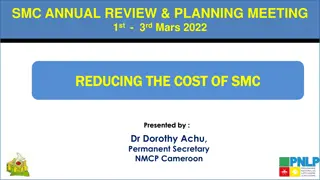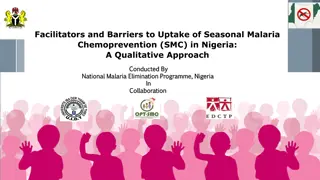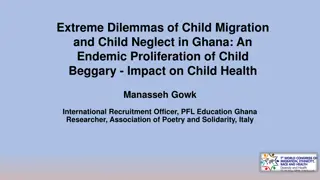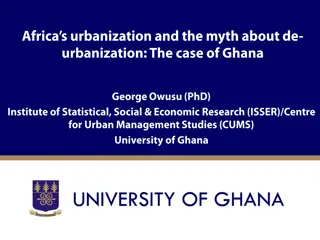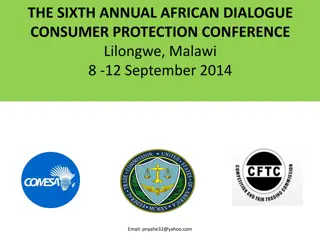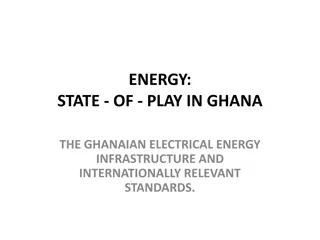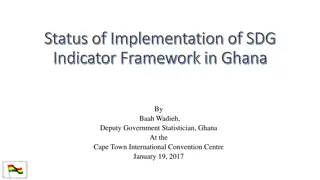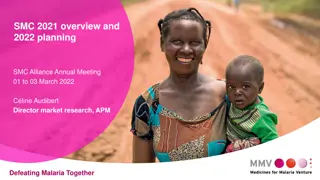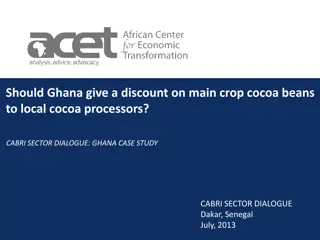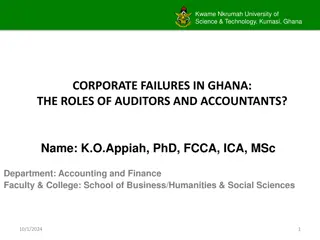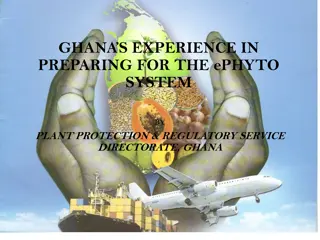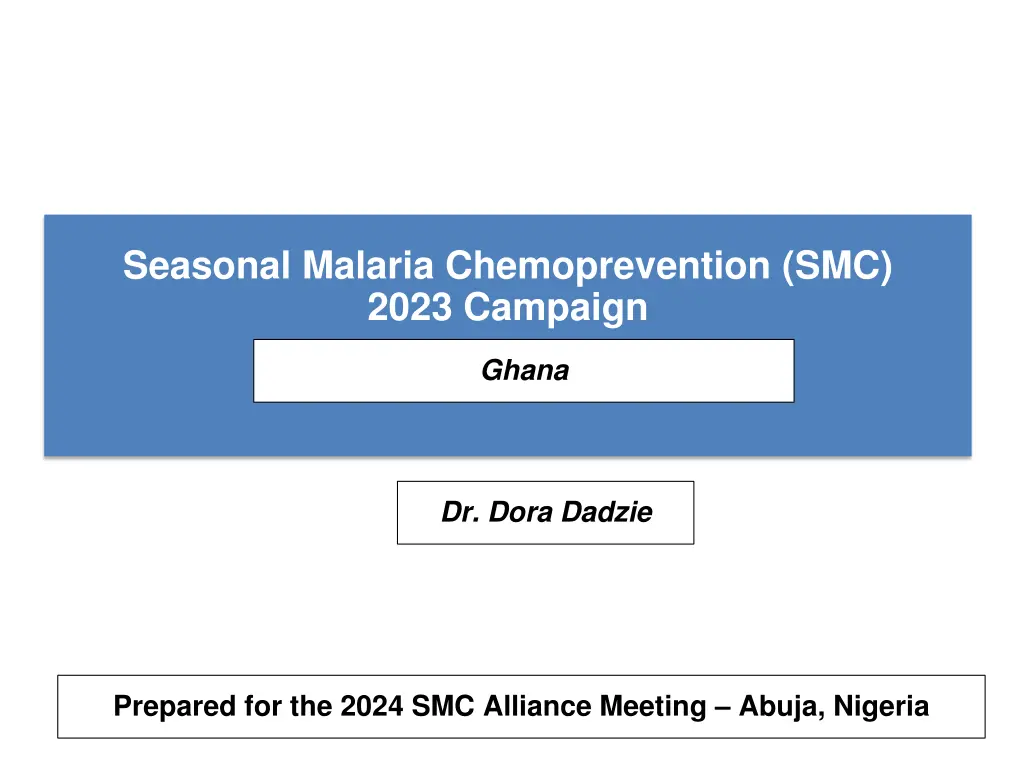
2023-2024 Seasonal Malaria Chemoprevention Campaign in Ghana
"Learn about the Seasonal Malaria Chemoprevention (SMC) campaigns in Ghana, focusing on reaching hard-to-reach populations amidst ethnic conflict. Explore key lessons learnt and innovations implemented in 2023 for better SMC coverage and impact in 2024."
Download Presentation

Please find below an Image/Link to download the presentation.
The content on the website is provided AS IS for your information and personal use only. It may not be sold, licensed, or shared on other websites without obtaining consent from the author. If you encounter any issues during the download, it is possible that the publisher has removed the file from their server.
You are allowed to download the files provided on this website for personal or commercial use, subject to the condition that they are used lawfully. All files are the property of their respective owners.
The content on the website is provided AS IS for your information and personal use only. It may not be sold, licensed, or shared on other websites without obtaining consent from the author.
E N D
Presentation Transcript
Seasonal Malaria Chemoprevention (SMC) 2023 Campaign Ghana Dr. Dora Dadzie Prepared for the 2024 SMC Alliance Meeting Abuja, Nigeria
Summary information for 2023 and plans for 2024 campaigns 2023 2024 26thJune 2nd December 18thJune 9th November Start and end dates 4 5 Number of cycles 69 (72) 69 (72) Number of districts targeted 1,497,595 reached 1,549,854 Number of children covered 3 59 months 3 59 months Age ranges covered 85.8% N/A Coverage (% targeted children receiving all cycles) No No Any drug resistance testing or efficacy studies performed? Insufficient funding Insufficient funding Any gap
Country map showing SMC implementing districts 2023 map (covered) 2024 map (targets)
Focus Reaching Hard- to-Reach Populations Navigating SMC Implementation amidst Ethnic Conflict
Key lessons learnt in 2023: Reaching hard-to-reach populations Background Longstanding territorial dispute between two ethnic groups in Bawku, Upper East region, Ghana Periodic and unpredictable escalation of conflict resulting in insecurity, loss of lives, people displacement, property destruction (including health infrastructure) Security risks for health workers & volunteers Limited access to eligible population Lowest SMC coverage in the region (75.8% compared with regional avg. of 85.5% receiving 4 doses) Limited oversight of campaign activities by supervisors
Key lessons learnt / innovation in 2023: Reaching hard-to-reach populations Innovation Engagement with local community and authorities (including political heads and security agency) Health worker trainings conducted in far districts to prevent violent clashes Special considerations in volunteer and supervisor recruitment: number, ethnicity etc. Flexibility in dosing days Use of IT to conduct targeted supervision: monitoring daily coverage Movement of commodities and personnel in only GHS branded vehicles Caution to volunteer & supervisors to not cross territory
Key lessons learnt in 2023: Reaching hard-to-reach populations Challenges Unstable size of target population Limited access to public health facilities for ADR management (District referral hospital not accessible to one faction) Extra cost (funding not adequate) Curfew limits access to target population (impedes option to reach families early morning and evening) Limited information/guidance on implementing SMC/public health interventions in conflict areas No clear protocols on ensuring safety of volunteers and supervisors
Key lessons learnt in 2023: Reaching hard-to-reach populations Future activities Improve resource allocation to the district Consider additional distribution strategy (e.g. fixed point) Liaise with relevant agencies to develop clear protocols for ensuring safety of volunteers and supervisors Equip volunteers and supervisors with knowledge and skills needed for working in a conflict area Liaise with private facilities to provide free care for children with ADRs

